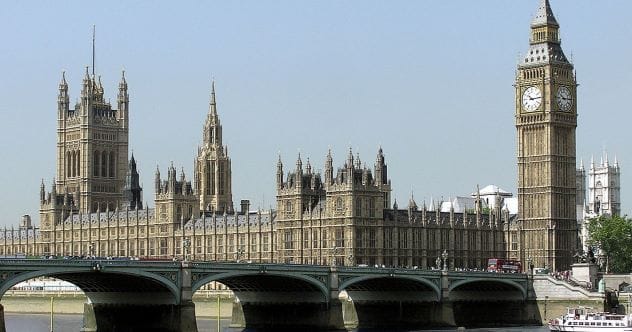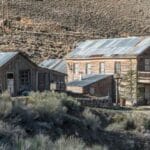Ever wondered what really goes on inside the historic walls of the British Parliament? While we often imagine polite debates, sometimes things get fiery! Prime Minister’s Questions (PMQs) on Wednesdays can turn into a real spectacle. It’s a chance for Members of Parliament (MPs) to question the Prime Minister, but it often boils over.
Sometimes, MPs are suspended not just for shouting matches, but for actions outside the House too. Get ready to explore ten truly shocking times British MPs faced suspension. You might be surprised by what gets a politician temporarily booted out!
10. Dennis Skinner: The “Dodgy Dave” Jab
Dennis Skinner, a long-serving Labour MP, is no stranger to a bit of parliamentary drama. He’s been asked to leave the House of Commons quite a few times! One memorable moment was in 2016. The big news at the time was the Panama Papers leak, which revealed financial secrets of wealthy people worldwide. The then Prime Minister, David Cameron, was mentioned in these papers.
Skinner, known for speaking his mind, questioned Cameron about money he allegedly received. During this fiery exchange, Skinner called the Prime Minister “dodgy Dave.” The Speaker of the House told Skinner this language wasn’t allowed and asked him to take back the word “dodgy.” Skinner refused, stuck to his guns, and was promptly kicked out of the chamber for the rest of the day. He certainly isn’t one to mince his words!
9. Lloyd Russell-Moyle: The Mace Mishap
Imagine a debate so heated that someone tries to walk off with a really important, symbolic object! That’s what happened in 2018 with Labour MP Lloyd Russell-Moyle. MPs were discussing Prime Minister Theresa May’s Brexit deal, and things got intense when May decided to delay a crucial vote on it.
In a moment of frustration, Russell-Moyle grabbed the ceremonial mace. This large, ornate silver-gilt club is a big deal – it symbolizes the Queen’s authority, and Parliament can’t officially meet or pass laws without it! He picked it up and started to walk off with it. Other MPs shouted “expel him!” and the Speaker quickly had him removed from the House. It was a dramatic protest that definitely got everyone’s attention.
8. Ian Blackford: Accusations and Ejection
Ian Blackford, who was the Scottish National Party (SNP) leader in the House of Commons, also found himself ejected more than once. In January 2022, tensions were high due to the “Partygate” scandals. This involved allegations that then Prime Minister Boris Johnson and his staff had parties during COVID-19 lockdowns when the rest of the country couldn’t.
During a passionate speech, Blackford accused Johnson of having “wilfully misled” Parliament about these parties. In Parliament, you’re not allowed to directly accuse another MP of lying. The Speaker gave Blackford a chance to change his wording to something like “unintentionally misled.” Blackford refused to back down and was told to leave the House. Even afterwards, he maintained his stance, saying Johnson wasn’t fit to be Prime Minister.
7. John McDonnell: Another Mace Moment
It seems the ceremonial mace is a popular target for protesting MPs! Years before Lloyd Russell-Moyle’s incident, Labour MP John McDonnell also made a grab for it in 2009. The debate was about expanding Heathrow airport, a plan McDonnell strongly opposed because it would affect the people he represented.
Feeling that the plans were being pushed through without proper discussion, McDonnell stood up during a statement by the Transport Secretary, picked up the mace, and placed it on an empty Labour bench. As he did it, he shouted, “It’s a disgrace to the democracy of this country.” His protest led to a five-day suspension from Parliament. He wanted to show he was serious about his constituents’ concerns.
6. Keith Vaz: Scandal Outside the House
Sometimes, an MP’s actions outside of Parliament can lead to suspension. This was the case for Labour MP Keith Vaz. He was a prominent figure, even chairing the Home Affairs Select Committee, which oversees government spending on immigration.
However, a newspaper investigation revealed a shocking story. It reported that Vaz had met two men at his London flat for a paid-for-sex arrangement. During this encounter, he was secretly recorded, allegedly offering to buy illegal drugs for someone else. Vaz claimed he met the men to discuss redecorating his flat, but this explanation wasn’t believed. Following a report, Vaz was suspended for six months for showing a “disregard for the law” and “disrespect to the House.”
5. Jonathan Sayeed: Business on Parliamentary Time?
Conservative MP Jonathan Sayeed was suspended for two weeks for something quite different: using Parliament tours to promote a business. He was part owner of a company called The English Manner, which taught etiquette, elocution, and even how to behave at afternoon tea.
Reports suggested Sayeed took clients into the House of Commons, letting them dine in private rooms to boost his company. The company’s website even advertised a “unique private tour and champagne reception with senior members of Parliament.” Sayeed said he was just showing people around personally, not for business. However, a committee found he had “fallen well below the standards the House expects” and risked damaging Parliament’s reputation.
4. Clive Betts: Misleading Immigration Officials
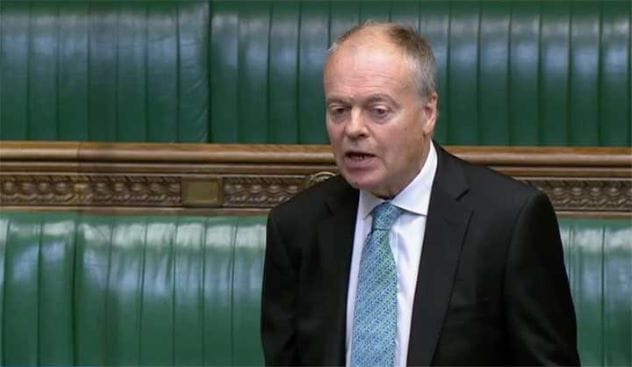
In 2003, Labour MP Clive Betts faced a week-long suspension. His trouble started over an attempt to help his office assistant, Jose Gasparo, a Brazilian national whose UK student visa was about to expire. Betts had hired Gasparo, and they even went on holiday together so Gasparo could reapply for a new visa upon return.
Things went wrong when Gasparo received a letter from a college that he hoped would support his visa application. However, the letter clearly stated it couldn’t be used for that purpose. Gasparo, in distress, used correction fluid to hide this part of the letter. Betts then photocopied this altered document on the way to the airport. A parliamentary committee later found Betts had acted “extremely foolishly” and that his actions “fell well below the standard expected of a Member.”
3. Conor Burns: Intimidation Tactics
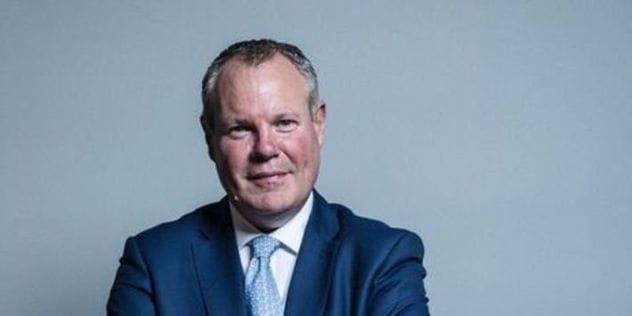
Former trade minister Conor Burns was suspended from Parliament for seven days after he was found to have intimidated a member of the public. The issue arose from a dispute involving Burns’s father and a loan.
In February 2020, Burns wrote a letter to someone connected with the company involved in the dispute. In this letter, he mentioned his public role and hinted he could use “parliamentary privilege” to raise the case. Parliamentary privilege protects MPs from being sued for things they say in Parliament. The Committee on Standards felt that Burns, despite being under personal stress, had wrongly used his status to try and scare someone. They stated that parliamentary privilege is precious and shouldn’t be used for intimidation.
2. Justin Tomlinson: Leaking a Confidential Report
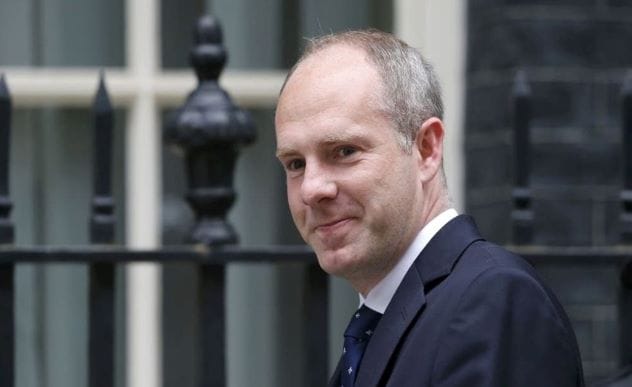
Conservative MP Justin Tomlinson also got into trouble for actions outside the House. He was suspended for two days after leaking a confidential report. At the time, Tomlinson was a minister responsible for disabled people and was also on a committee looking into consumer credit rules – something very important for vulnerable people, including those with disabilities.
Despite his role, Tomlinson shared a draft of the committee’s report with an employee of a payday loan company. This employee then sent back comments and suggested changes. The Parliamentary Commissioner for Standards said Tomlinson’s actions allowed the payday lender to try and influence the committee’s findings. Tomlinson later apologized for his “clouded judgement.”
1. Dennis Skinner (Again!): The Coke Accusation
It only seems fitting to end with Dennis Skinner, who started our list! Several years before his “Dodgy Dave” comment, back in 2005, Skinner made headlines for another fiery outburst. This time, his target was George Osborne, who would later become Chancellor (the UK’s finance minister).
During a debate about the UK economy, Skinner got angry as Osborne questioned the Labour government’s achievements. Skinner stood up and, referring to old photos of Osborne that had appeared in the media near what looked like a line of cocaine, said: “The only thing growing then were the lines of coke in front of boy George [Osborne] and the rest of them.” Just like his later incident, Skinner refused to take back his remark and was promptly removed from the House. He certainly knows how to cause a stir!
These moments show that while Parliament is a place for serious debate, it can also be a stage for high drama, personal clashes, and sometimes, behavior that crosses the line. It’s a reminder that politicians are human, and sometimes, things get messy!
What do you think about these parliamentary suspensions? Were they justified? Leave your comment below and let us know your thoughts!


